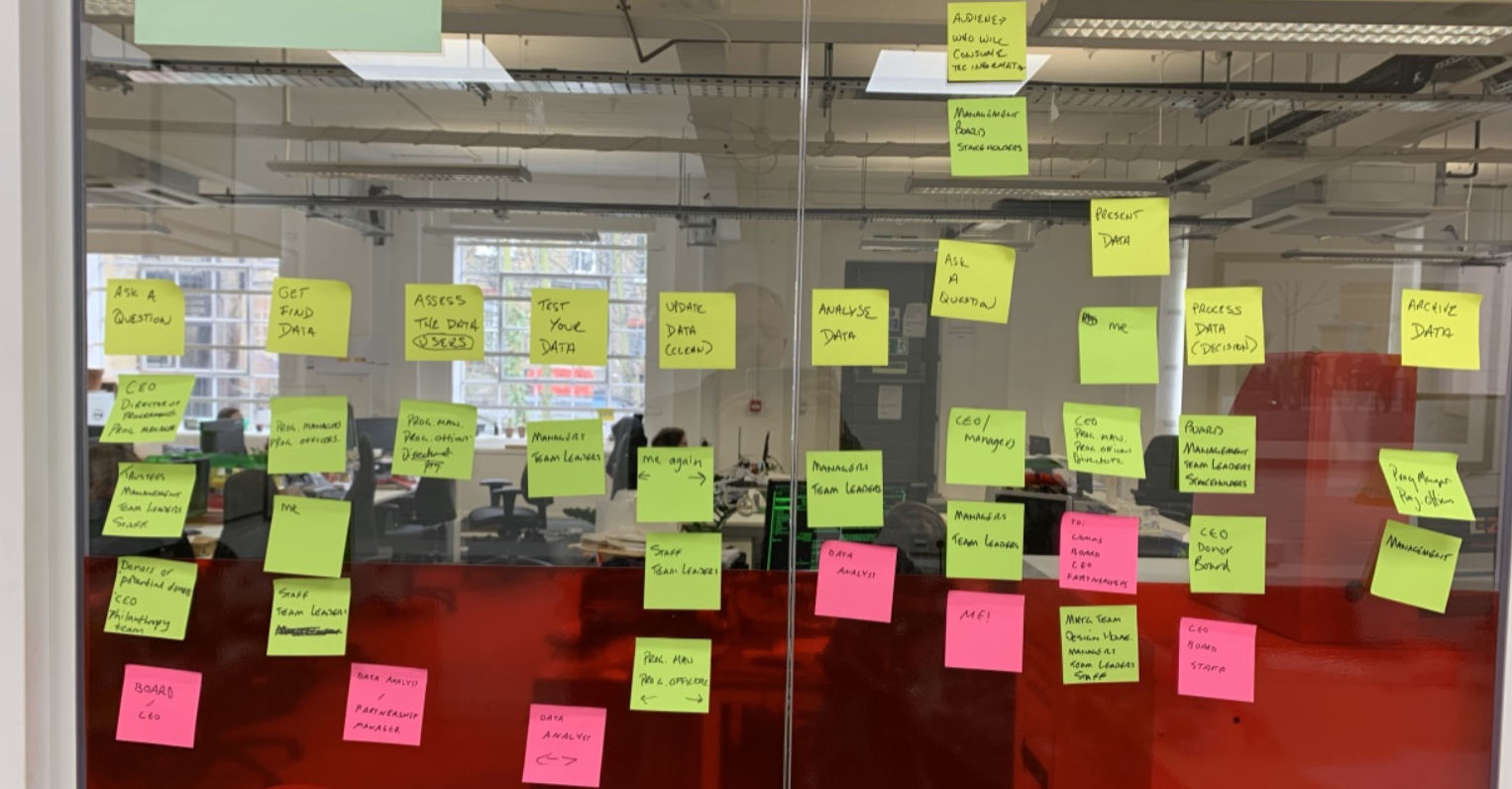News
Creating a data culture in community foundations
13 May 2019
Guest post by Dirk Slater, FabRiders – a strategic social change consultancy

In April 2019 we held a workshop focusing on how to strengthen and improve the data culture within a community foundation. This blog outlines what we did, along with some key takeaways from the workshop.
We started with a deep dive into how adults learn
We started out reflecting on our own learning experiences. Once those had been shared, we asked everyone to rate the following learning methods from most effective to least effective:
- Reading step by step instructions
- Listening to a lecture
- Watching and listening to a presentation
- Watching a video how-to
- Teaching others
- Discussion with peers
- Personal experience
There was some disagreement around what was the least effective method. ‘Listening to a lecture’ or ‘watching and listening to a presentation’ were at the bottom for most, with a caveat that lectures and presentations can be greatly improved if they are entertaining. While ‘discussion with peers’, ‘teaching others’ and ‘personal experience’ were seen as being highly effective. One of the participants added ‘problem solving’, which people agreed was the most-effective.
This ended up being a perfect segue into reviewing some research on how adults learn. Malcolm Knowles did some ground-breaking research in the 1960’s & 70’s that led to the theory of Andragogy, or how adults learn. To summarise his theory:
- Adults need to understand and accept the reason for learning a specific skill.
- Experience (including error) provides the basis for learning activities.
- Adults need to be involved in both the planning and evaluation of their learning.
- Adult learning is problem-centered rather than content-oriented.
- Most adults are interested in learning what has immediate relevance to their professional and social lives.
We spent the first part of the workshop focusing on adult learning because building a data culture is really about building a learning culture. As we have noted throughout this initiative, using data involves going on a journey that often starts with a question but then leads to further questions and even more data. Learning how to be a more effective community foundation is at the core of it all.
Understanding the profiles of individuals that drive data culture
We did a review of the data workflows from the previous workshop, and explored the various roles in each step.
We explored the data literacy work that Heather Leson has been leading at the International Federation of the Red Cross/Red Crescent Society. We looked at how she categorises diverse audiences across the different sectors and regions of her work.
- Data Curious need an ‘on ramp’ to learn and be exposed to the data basics.
- Data Advocate sees relevance and wants to improve their skills.
- Data Active are motivated to self-learn and are on their way to being a ‘data-leader’.
- Data Ready are ‘trainers’ or ‘data leaders’ who lead data-driven projects and mentor colleagues.
These profiles inspired us to do a deeper dive into understanding our audiences. We identified key types of individuals that we need to more deeply engage with on using data for learning and built user personas based on the following template:
- Name:
- Role:
- Data level:
- Skillset:
- Values – how do they want to be seen?
- What problems are they solving? What are their motivations for using data?
- How do they apply data to their jobs?
- What are their barriers for using data?
- How do they communicate with others?
- What are the opportunities to engage them on data? What skills are they keep to learn?
- What can they teach others?
Each of the participants produced three user profiles of individuals in their community foundation that will be key for building a data/learning culture.
The building blocks of data culture
We had a discussion about what the Data Champions need in order to build a data culture in each of their Community Foundations. These included:
- Get trustees to ask the questions and then engage the Board in the data journey.
- Define problems that we want to use data to help solve.
- Carve-out space to actively discuss data and how it is being used.
- Be wary of knowledge silos when growth happens and use foundation-wide learning as a frame to break through them.
- Get high-level buy-in on learning and the data journey.
- Think about data for leadership.
We took a look at some data culture resources that were developed for other sectors to determine their usefulness for community foundations:
We wrapped up the workshop with each of the Data Champions sharing their next steps for building a data culture in their own organisation. Each participant talked about ways to be more intentional about surfacing learning opportunities in routines that already exist in the organisation, and ways to engage their colleagues on better defining problems they want to solve.
